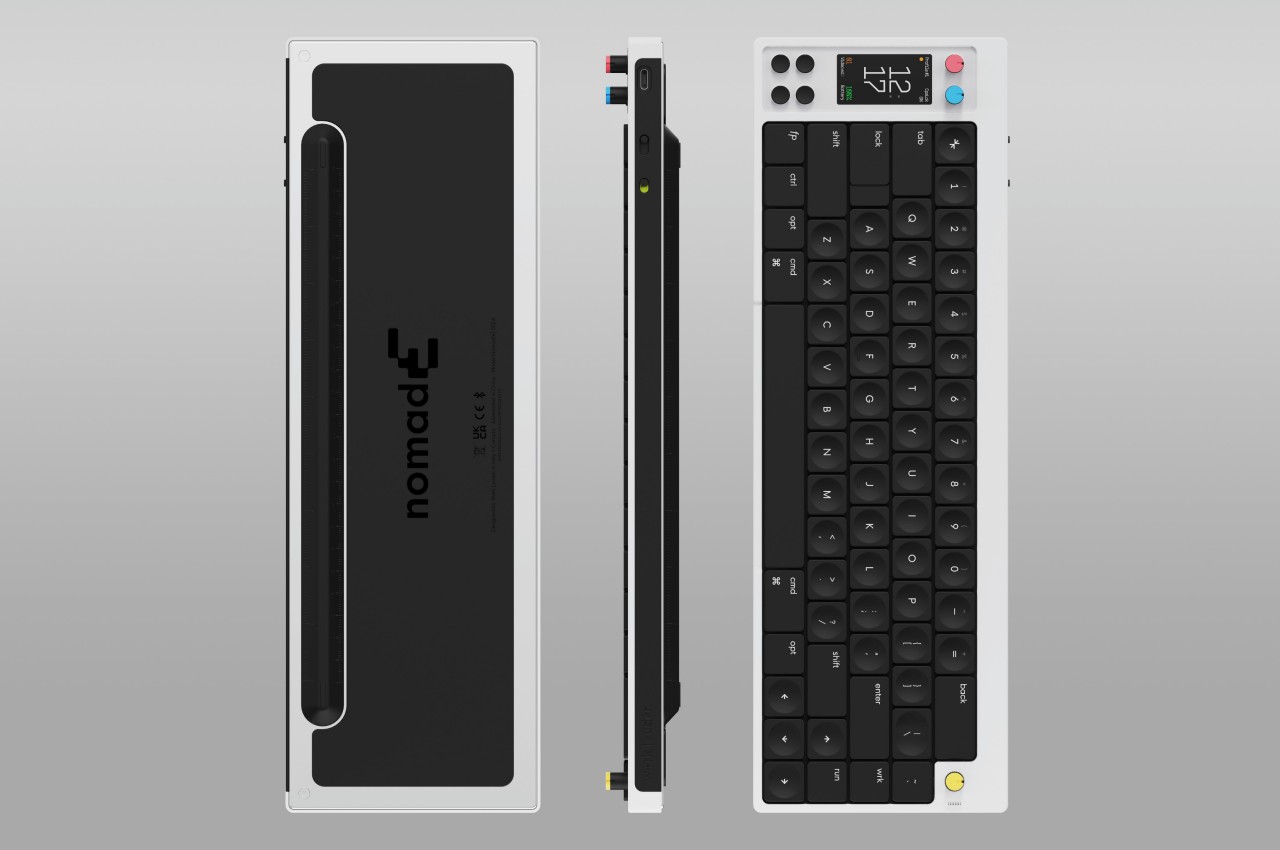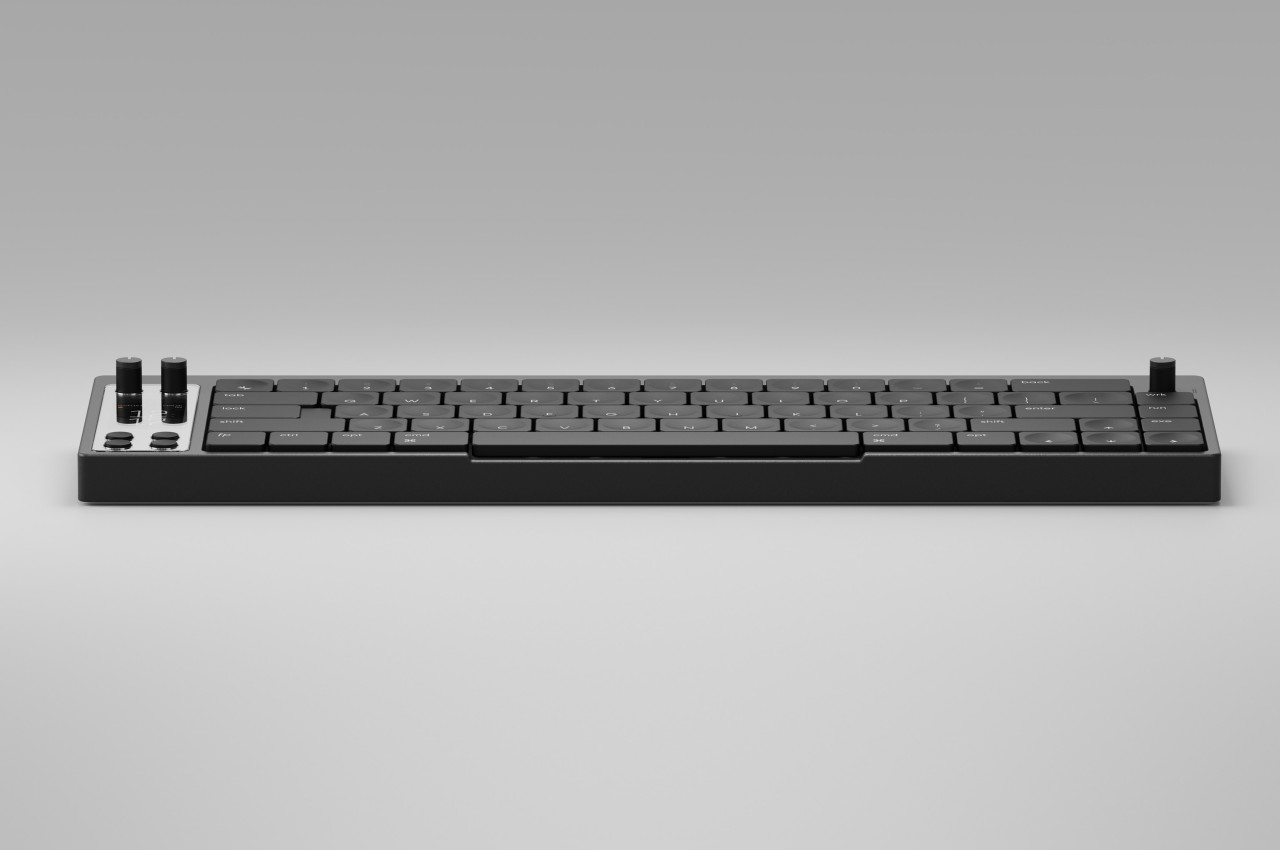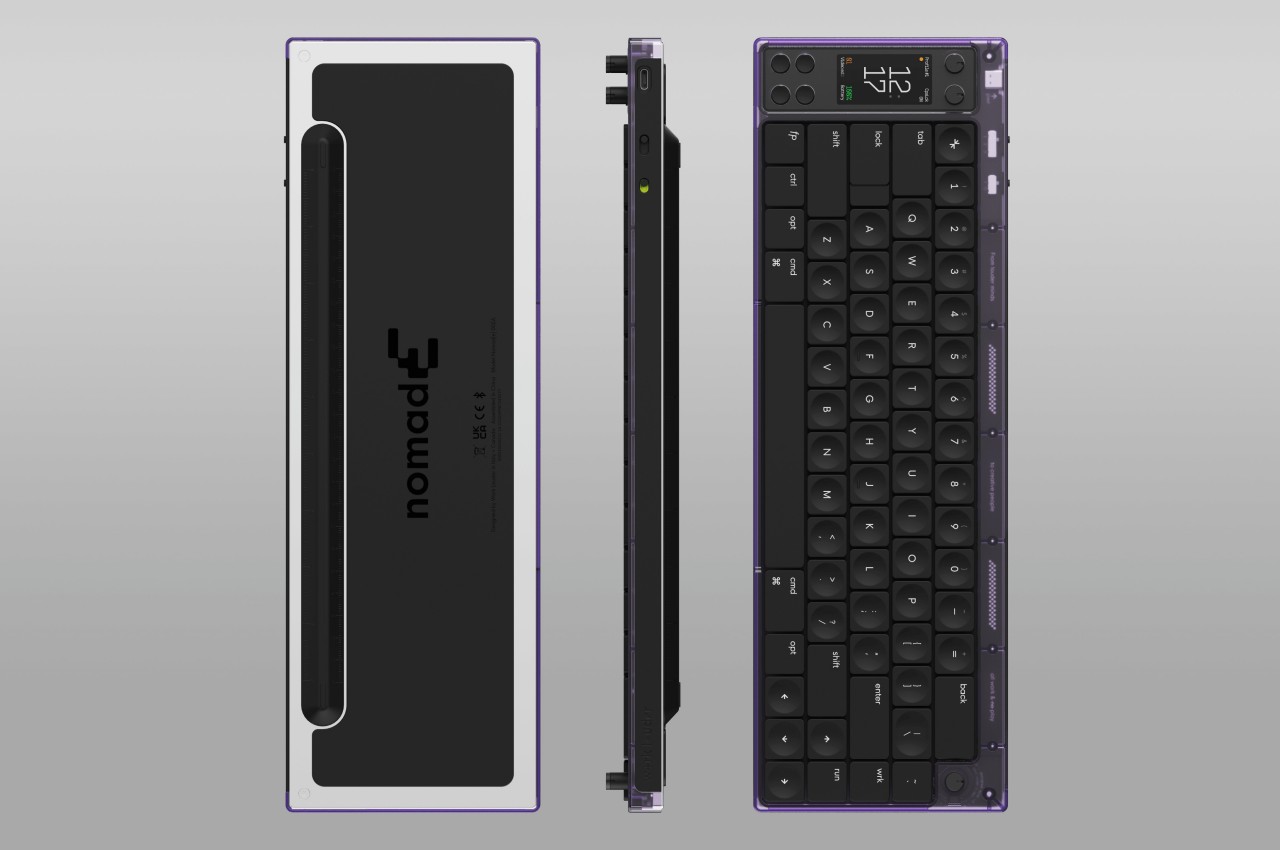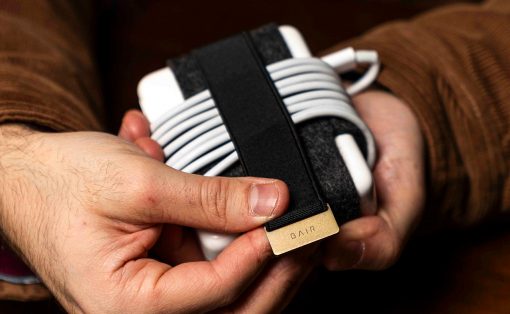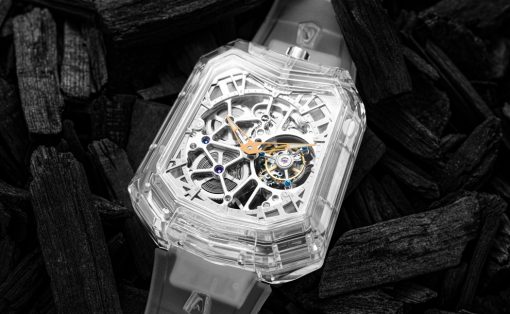
A lot of people who live and die by computers swear by mechanical keyboards for one reason or another. There are quite a few benefits to this type of computer keyboard, even if you don’t exactly subscribe to the sound or typing experience they bring. It almost seems like a by-product of their audience that mechanical keyboards happen to be significantly more customizable than their softer-sounding counterparts. This is often seen in the way you can change keycaps or even switches, but there are also quite a number of mechanical keyboards that have extra buttons, dials, and whatnot to give owners even more control. This new keyboard puts a unique twist on that characteristic, adding not only knobs and buttons but also a small display on the side in the hopes of enhancing your workflow and improving your productivity.
Designer: Work Louder
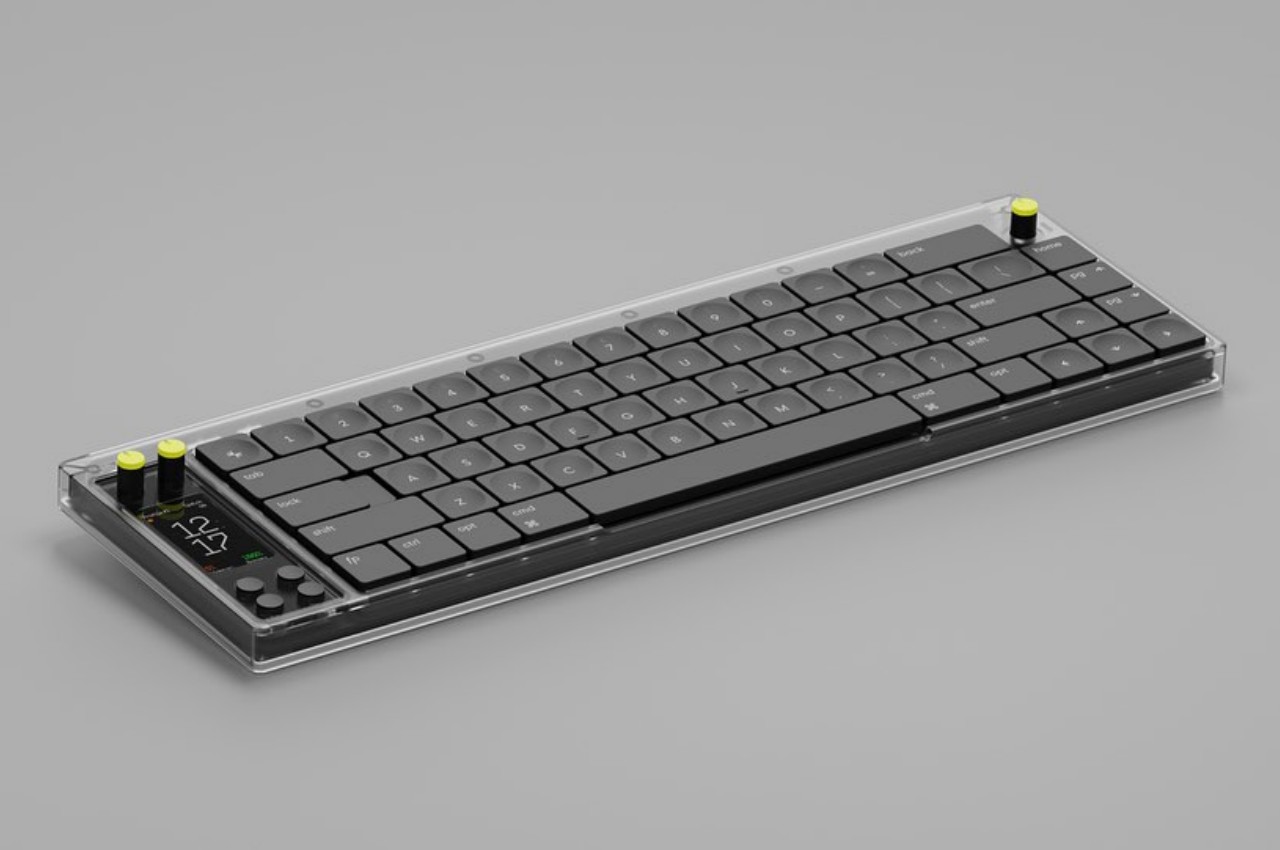
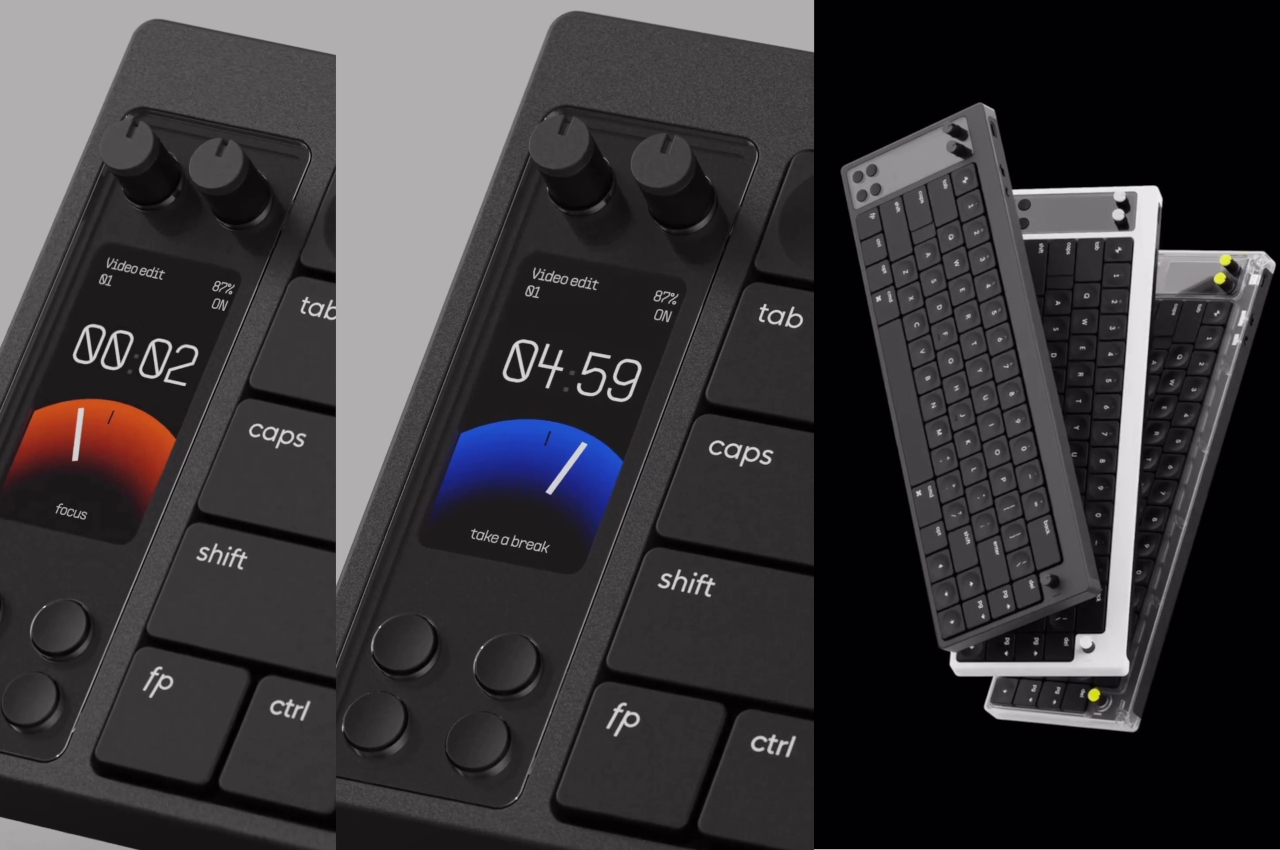
A keyboard with a display is no longer an alien concept, thanks to the somewhat controversial MacBook Pro Touch Bar. In fact, that thin strip did more than just show icons, it served as a row of icons you can tap, replacing the row of function keys with something that dynamically changes depending on the current application being used. That idea has been retired, for better or worse, but the idea of adding a display on a keyboard lives on in different ways.
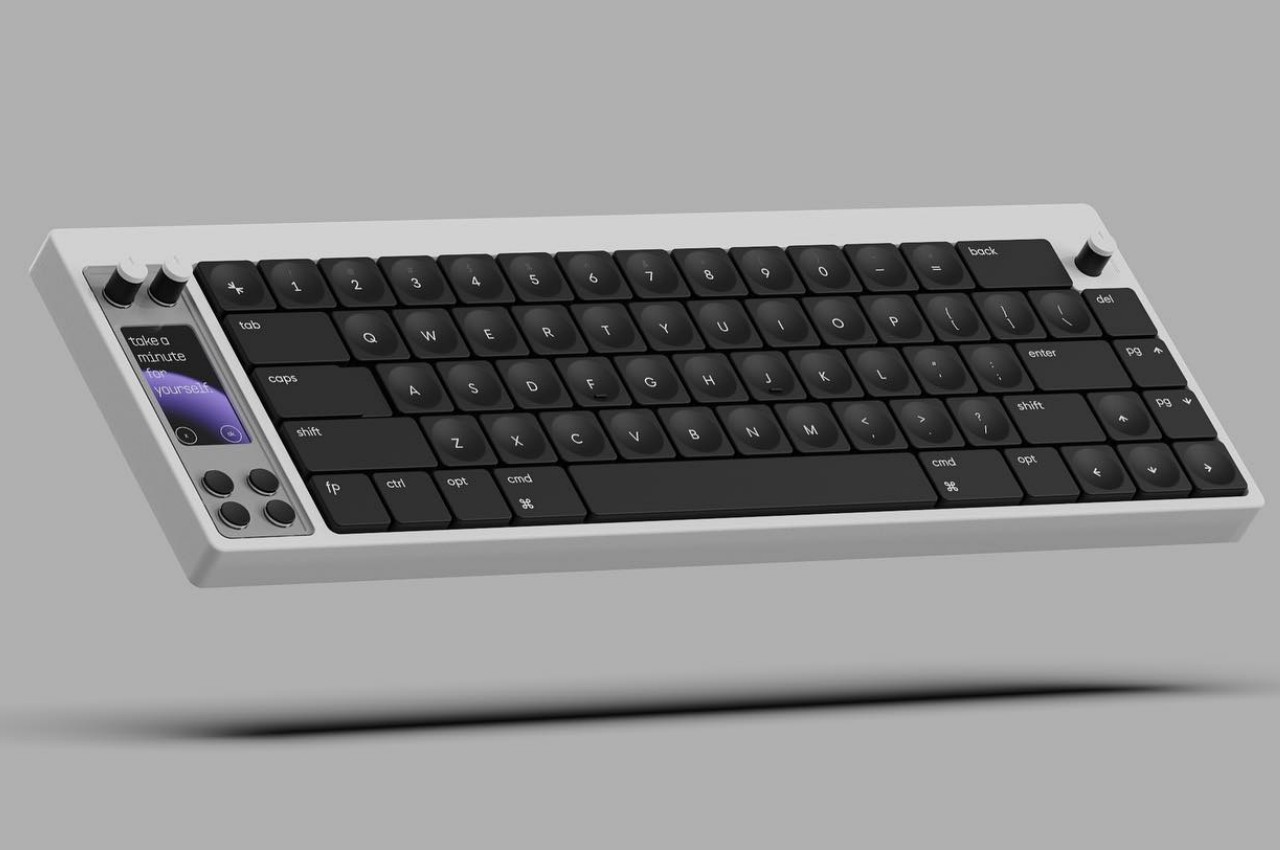
The Work Louder Nomad Keyboard is less ambitious and less spectacular than the Apple Touch Bar, but it could prove to also be less intrusive and more usable. In essence, it’s a vertical 1.9-inch LCD display off to the left of the tenkeyless (it has no numeric keypad) keyboard. There’s no mention of any touch functionality, so it simply acts as a very small display to show different kinds of information. It could be some pieces of data that you need for a specific application, a list of settings for the computer or the keyboard, a Pomodoro timer, or even just a large clock. The display adds a simple yet effective way to have critical information always present without getting in your way by being too smart or too complicated.
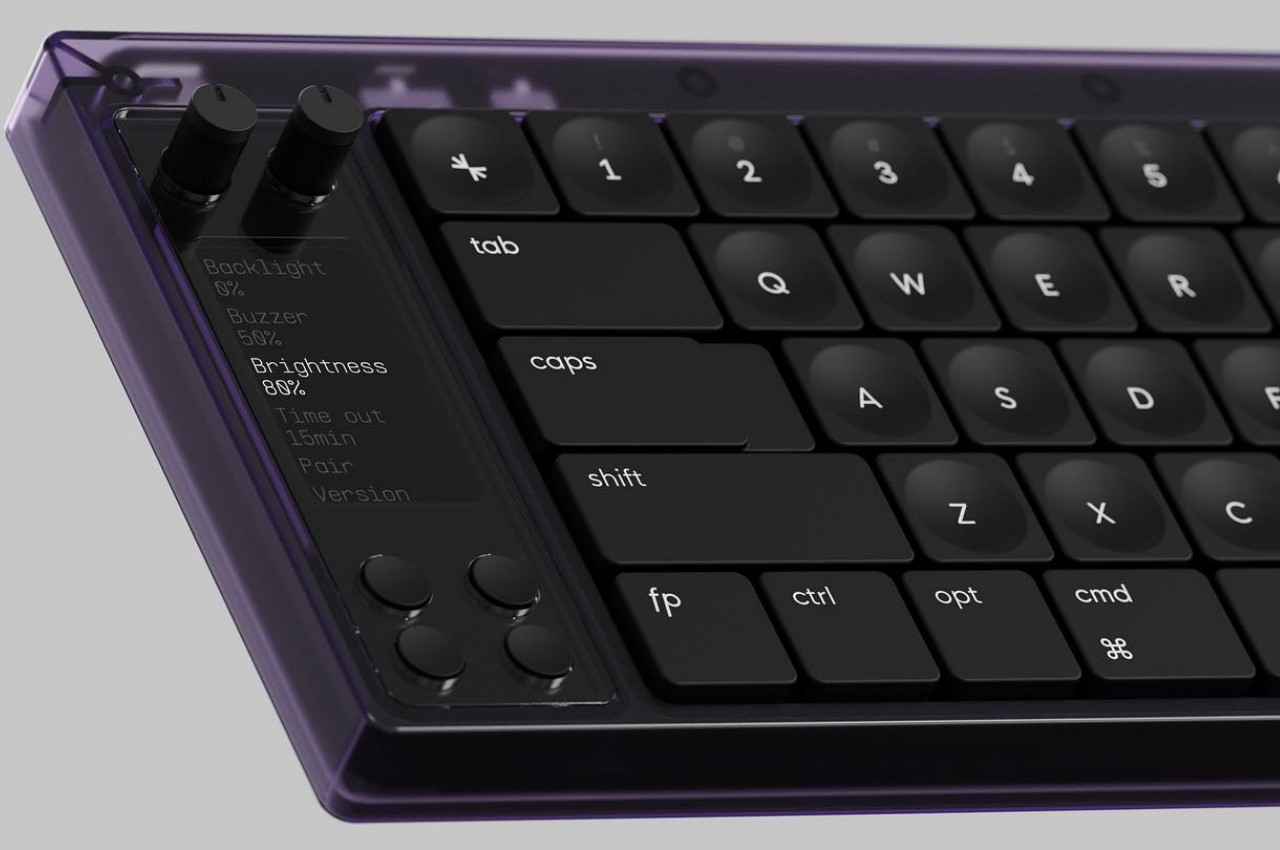
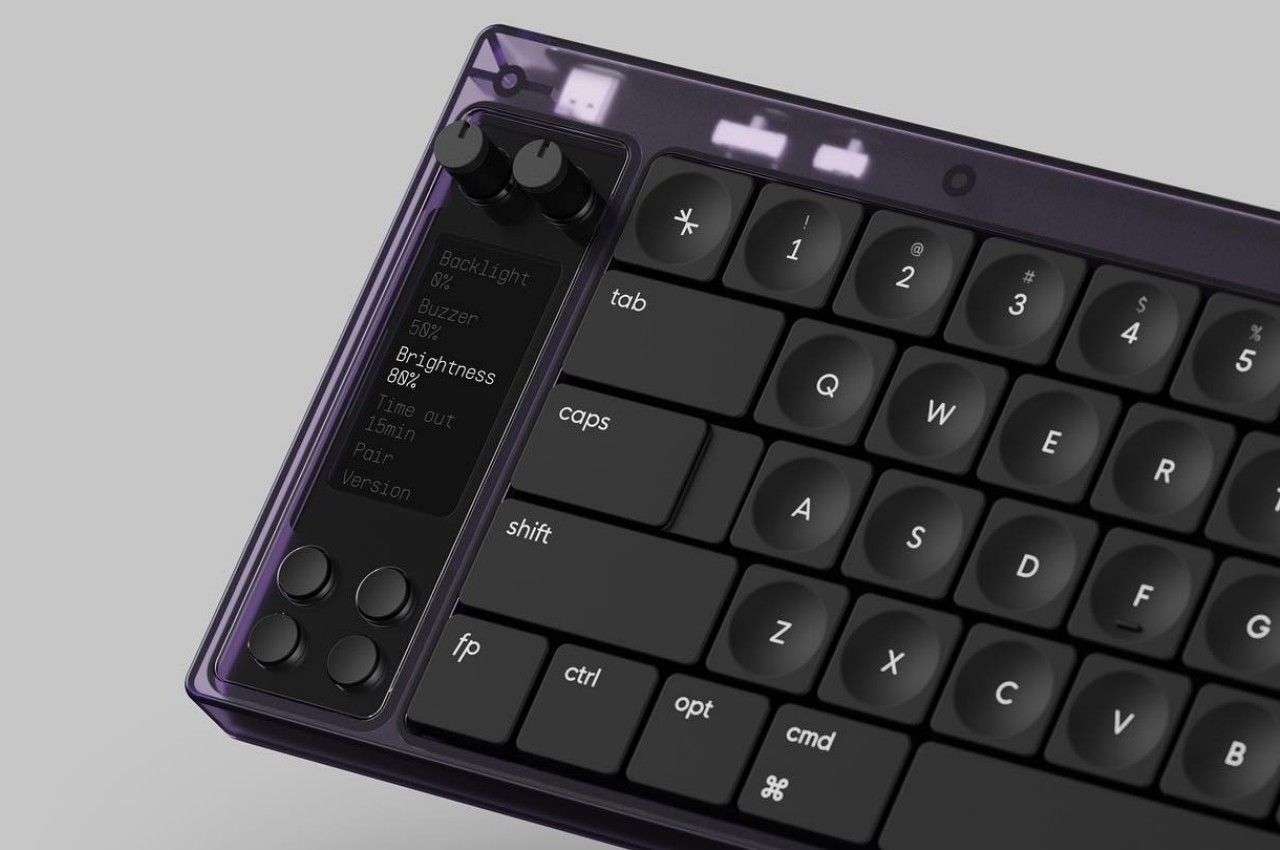
That, however, isn’t the only special thing about the Nomad Keyboard’s design. Just like its siblings, it has a number of buttons and knobs that you can configure for different purposes, depending on whether you need it for creating content or simply changing the computer settings. Some might argue that these could be less effective than the somewhat standard Fn key combinations on some keyboards, but in addition to their flexibility, the physical controls add a bit of flavor to the workflow, making the experience more enjoyable and special.
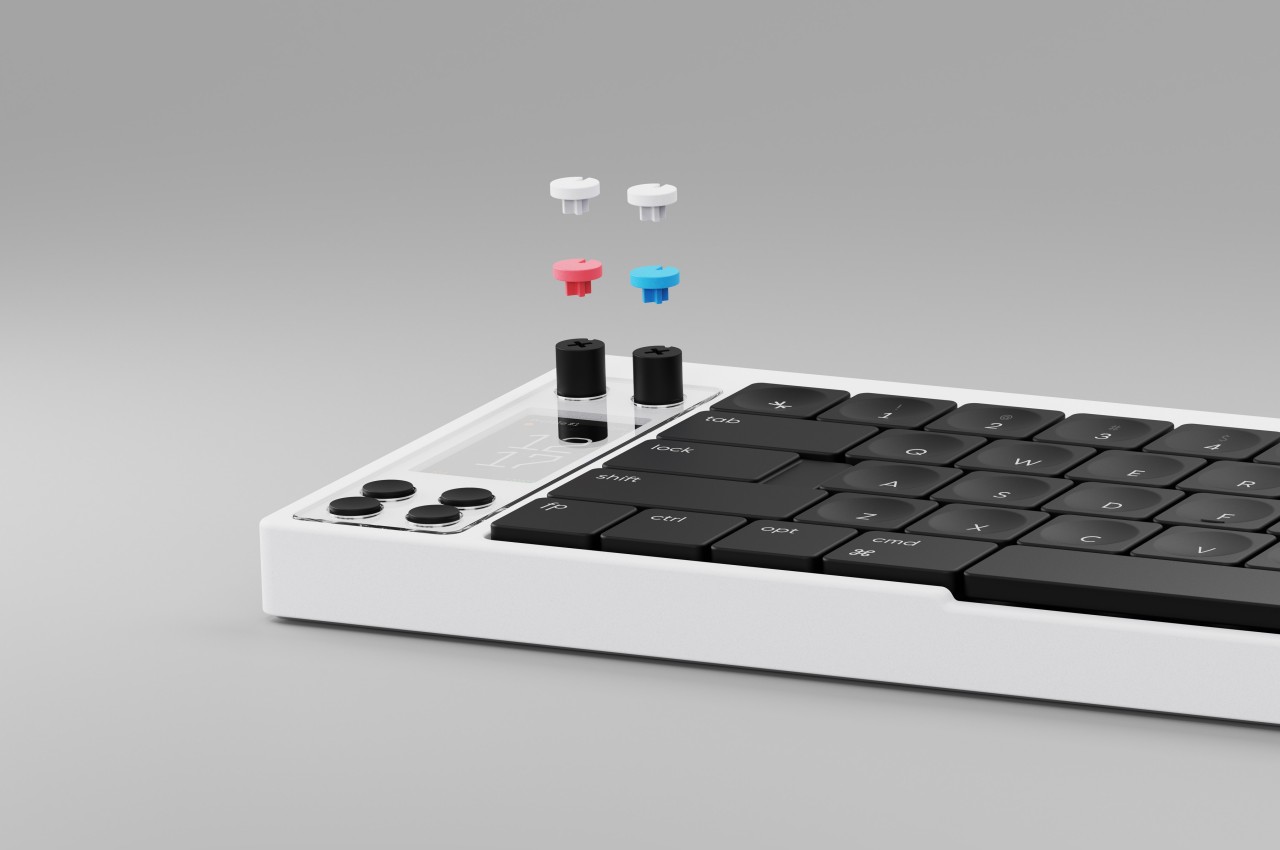
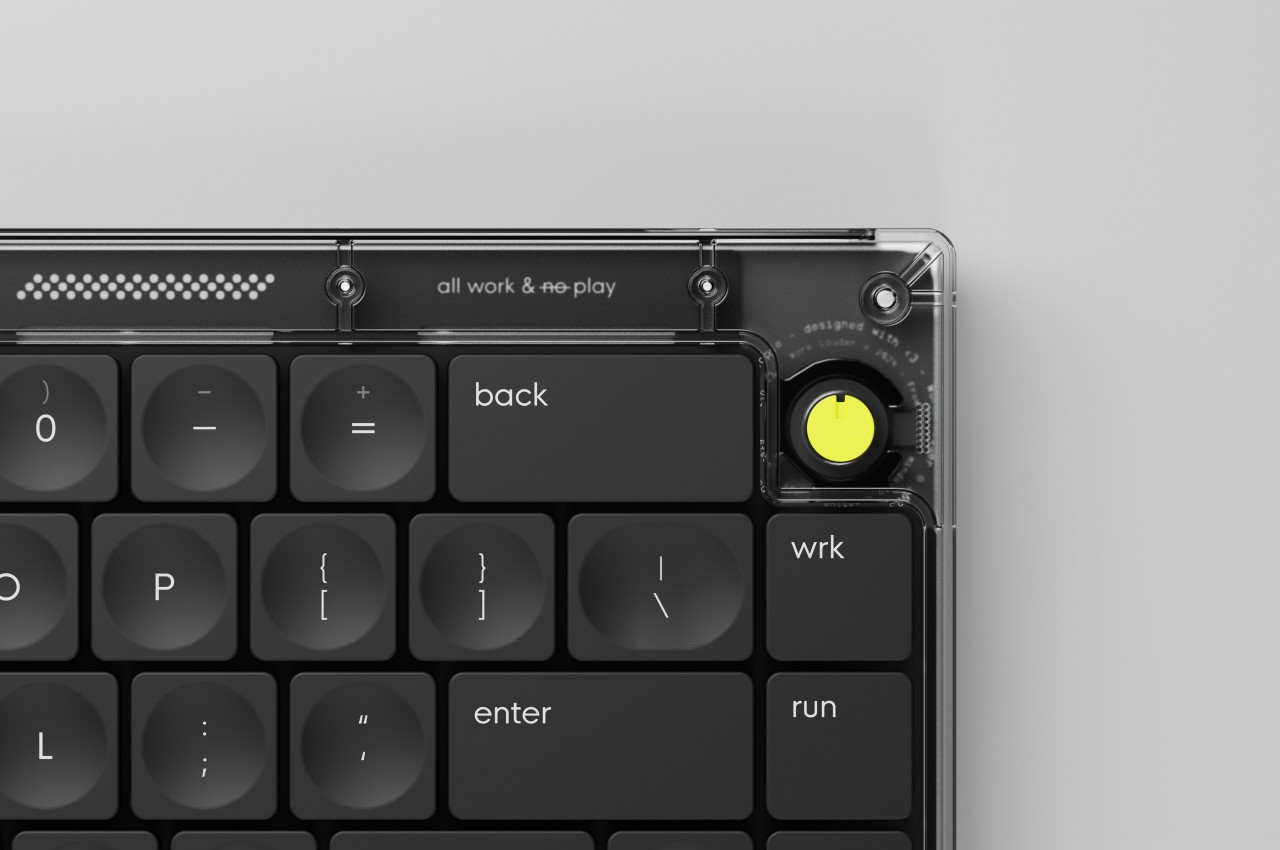
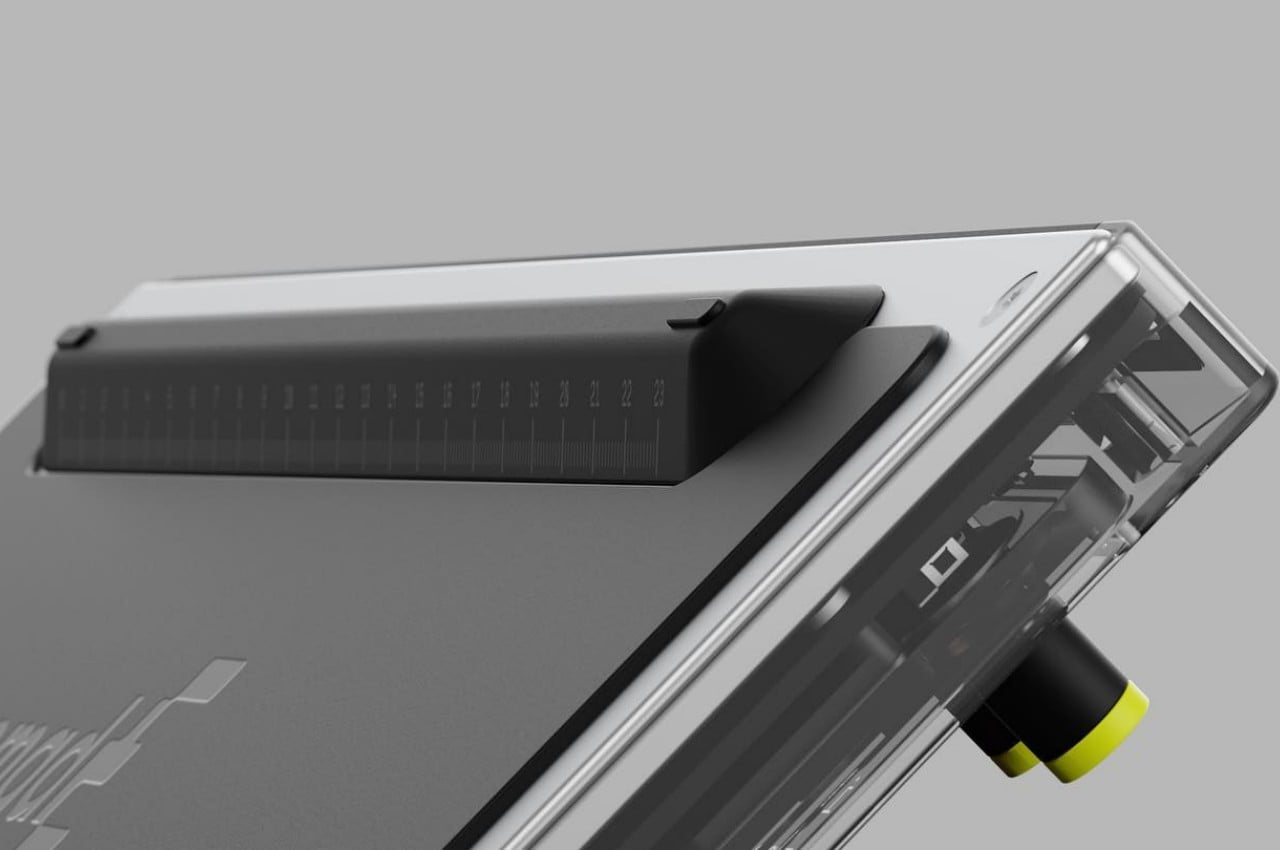
Interestingly, the Nomad Keyboard defies mechanical keyboard conventions by using concave crater-like keycaps rather than the typical raised design. This adds some personality to the keyboard while still maintaining the mechanical switches underneath. That said, it also limits the types of keycaps you can use to replace these, effectively tying you into the manufacturer for the lifetime of the keyboard.
